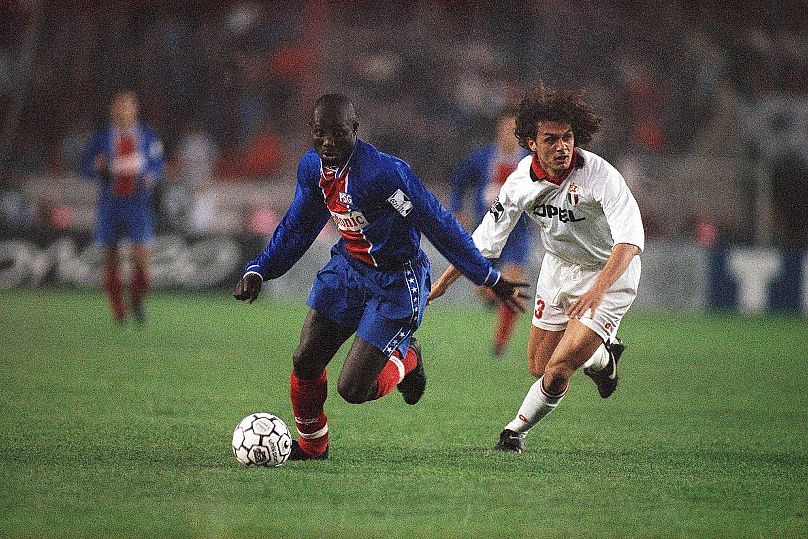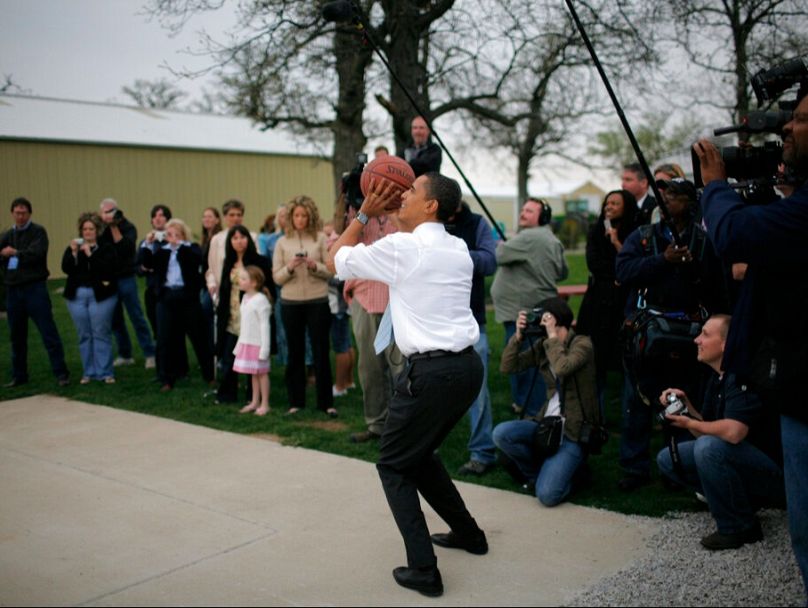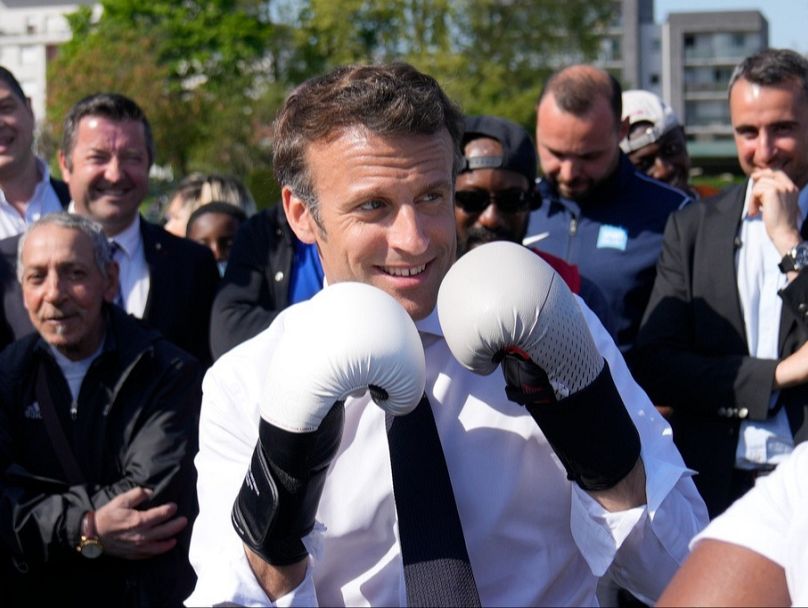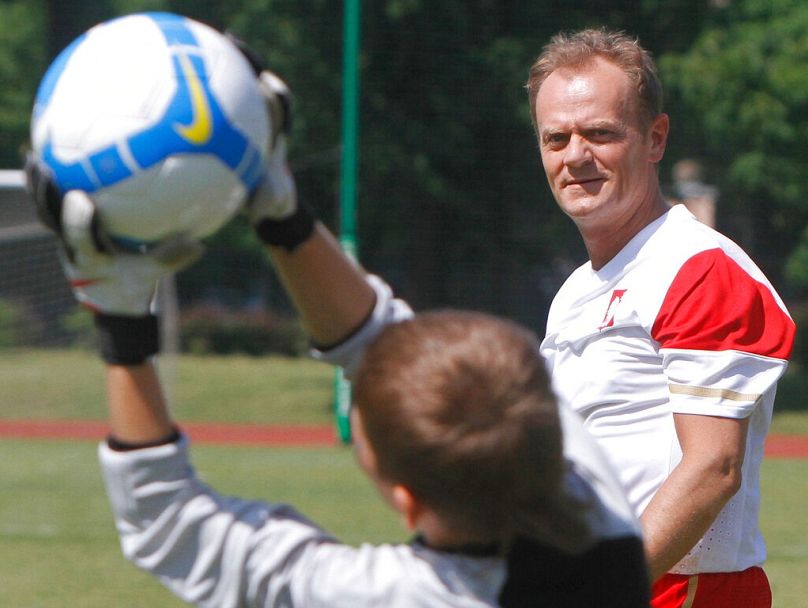Politicians often seek to show off their physical strength, with the new Polish President Karol Nawrocki the latest to continue the trend.
Following his election in August, the former right-wing historian's social media has been awash with footage of him training in the gym.
The videos show him hitting a punching bag, lifting weights and doing pull-ups.
From the gym to the political arena
The recently elected Polish president's publicised workouts should come as no surprise, as many leaders have also been keen to present themselves in sporting contexts.
Examples include Vladimir Putin, who has been known to show off his judo skills, and Barack Obama, who demonstrated his basketball skills by making a three-pointer.
There is also no shortage of athletes who have decided to switch from sports to politics.
Vitali Klitschko, a former Ukrainian boxer who now serves as the mayor of Kyiv, is among them.
So too are former Manchester City footballer Mikheil Kavelashvili, who is now the president of Georgia, and Imran Khan, a former Pakistani cricketer who later became his country's prime minister.

Another two are the ex-footballer George Weah, who was president of Liberia from 2018 to 2024, and Arnold Schwarzenegger, the actor and professional bodybuilder who served as governor of California.
In Poland, similar careers have been pursued by Szymon Ziolkowski, an Olympic athletics champion who made it to the Sejm, and Witold Bańka, an athlete and sprinter who became minister for sport.
Does being athletic make it easier for politicians to win votes?
Is an athletic politician more likely to convince voters? Does physical fitness help a politician?
Speaking to Euronews, Professor Jacek Wasilewski, a media expert from the University of Warsaw, said that it can indeed be advantageous.
Wasilewski noted that if we see someone who is muscular, we think to ourselves: "'Oh, this person will be able to keep us safe.' Because for many thousands of years of our evolution, that is indeed how it was."

According to the lecturer, politicians exploit their sporting image.
"In times of uncertainty, when people feel anxious, a politician displaying physical strength...gives an illusory but strong sense of stability," Wasilewski explained.
Wasilewski said that politics used to be dominated by aristocrats who presented themselves in a more refined way, but that this has now changed.

"Today, politicians direct their message to the masses, which requires simpler, more pop-cultural language — sometimes aggressive or offensive," he said.
"Images of politicians allude to cinematic heroes or symbols of strength, which in popular culture are associated with security. For voters immersed in this culture, such a leader is a warrior who 'won't let anyone step on his head', but also won't let anyone step on our country's head."
"Tusk's 'branch-humping' vs Nawrocki's boxing
Prime Minister Donald Tusk, a strong supporter of the football club Lechia Gdańsk, is another Polish politician who loves sport.
He even became vice-president of its fan club in the early 1970s.

However, it seems that Nawrocki has gained a little more politically from his love of sport, according to Wasilewski.
"Tusk playing football was perceived as 'backyard,' it's entertainment, spending time together, which doesn't necessarily build an image of power," he said.
"Nawrocki's boxing, on the other hand, is associated with masculine identity, courage and resistance to blows."
"Sport, particularly in the Olympic tradition, comes from the exercise of warriors. Boxing is a direct reflection of this, while football is a ritualised team game. Modern sports, such as golf and polo, have moved away from this warrior symbolism," the professor added.







